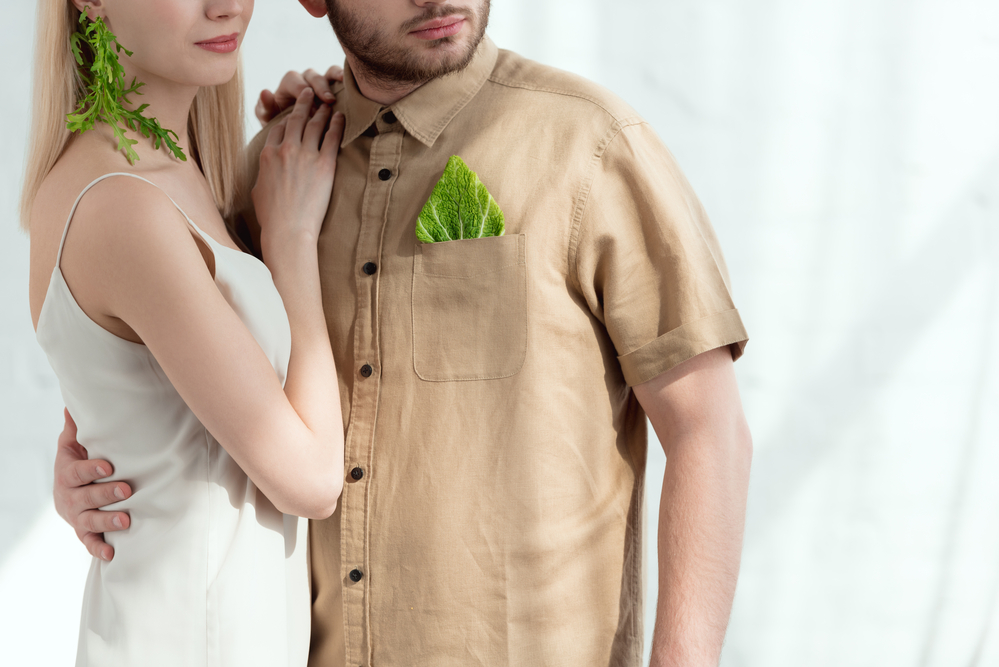We all know organic is the buzzword at the grocery store and most people are familiar with the benefits to themselves and the planet they’re getting when they choose organic produce. If you’re striving to put the best into your body, what about onto your body? Let’s delve into the top five ways organic clothing is better for you and better for the planet.
Better For Climate
The production of conventional clothing relies heavily on fossil fuels. These fossil fuels contribute significantly to CO2 emissions and the pollution of land, water, and air. These drawbacks aren’t just avoided when you buy organic clothing, you’re actively fighting against them. Organic farming, which is required to produce the organic garments, actually replenishes the soil and helps to remove CO2 emissions from the air. Because the soil stays rich in nutrients, it’s able to be used again to grow crops or other plants, without fertilizer. Organic farming also uses less water, a crucial resource that is compromised by conventional farming methods.
Better For Land
Pesticides and fertilizers typically used to make things like cotton, not only harm the plants they come into contact with, but they also contaminate soil, water, and air. A vicious cycle begins when the chemicals remove the nutrients from the soil, overtime the soil will require more fertilizers and so on and so forth. The chemical runoff from the soil pollutes nearby water sources, like rivers, disrupting fragile ecosystems and harming many more plants and animals.
Organic farming prevents the use of these harmful chemicals and their ugly side effects.
Better For Workers
The toxic chemicals used in the production of conventional clothing aren’t just bad for our planet, they are bad for the people who work in producing these items. Organic farming prevents farmers and workers from exposure to these harmful substances. Pesticides have been linked to many health issues like cancer, reproductive issues, birth defects and poor immune system function. When farmers spray pesticides, that has an effect on their families and communities too. Then workers who harvest the plants come into direct contact during that process as well.
Farm workers are just the beginning, factory workers must also handle the raw substance while preparing to spin the plant into a fabric. Not to mention the other harmful synthetic chemicals used in the factory for production of clothing. Buying organic also helps ensure the people working to produce your clothing are paid a living wage. You can feel good about knowing this and that your clothes weren’t made in a sweatshop.
Better For Animals
The synthetic materials used in non-organic clothing contain microplastics which are horrible for the environment, especially marine life. Most of us still cut up plastic rings from soda cans and don’t realize the clothes we buy are contributing to more plastic ending up in the ocean. Every single time a synthetic material gets washed, these particles are released into the water system. When oceans, lakes, and rivers get these plastics in their waters, they are consumed by local wildlife. It can really mess them up, and as the smaller animals are eaten by bigger ones, they too accumulate these microplastics and so on and so forth until they too end up on our dinner plates.
Better For You
We know how important what you put into your body is, but your skin absorbs what it’s exposed to. Organic fabrics help protect you from those annoying or downright harmful side effects. Synthetic fabrics might be itchy, make you break out, or even weaken your immune system. Since organic fabrics are made without chemicals, they are considered hypoallergenic, and especially important to those with sensitive skin. Organic fabrics aren’t just softer and easier on your skin, they are also more durable. Your clothes will look and feel better as well as last longer.
This is a Contributor Post. Opinions expressed here are opinions of the Contributor. Influencive does not endorse or review brands mentioned; does not and cannot investigate relationships with brands, products, and people mentioned and is up to the Contributor to disclose. Contributors, amongst other accounts and articles may be professional fee-based.

